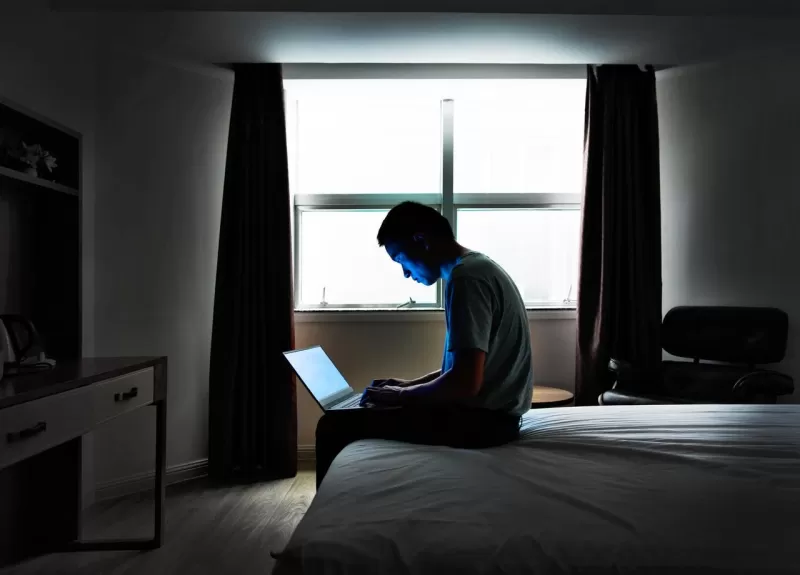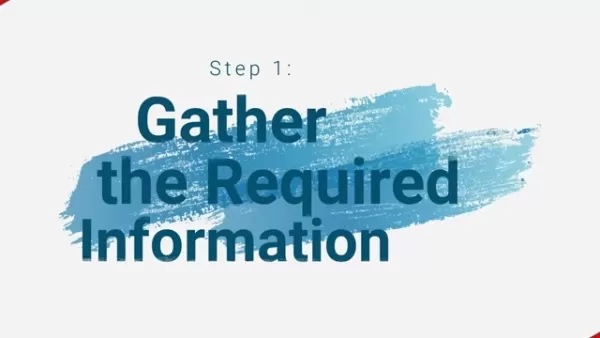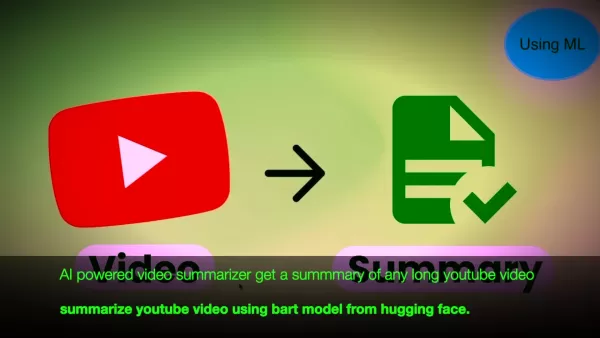Heavy ChatGPT Use May Lead to Increased Loneliness, Suggests OpenAI Research

The rise of AI chatbots like ChatGPT for personal companionship and emotional support has sparked significant debate, particularly concerning their potential impact on human interactions. Recent collaborative research from OpenAI and the Massachusetts Institute of Technology has shed light on this issue, suggesting that increased reliance on these chatbots might contribute to heightened loneliness and reduced social engagement with others. These findings come from two studies that, while not yet peer-reviewed, offer a glimpse into how AI chat platforms might affect users' emotional well-being and behaviors.
In the first study, OpenAI conducted an extensive automated analysis of nearly 40 million ChatGPT interactions, ensuring user privacy by excluding human involvement. This was complemented by targeted user surveys to understand real-world applications better. The researchers looked at users' self-reported opinions alongside their conversations to assess "affective use patterns."
The second study, led by the MIT Media Lab, involved a Randomized Controlled Trial with approximately 1,000 participants over a month. Approved by an Institutional Review Board, this controlled study explored how different platform features and interaction types could influence users' psycho-social and emotional well-being, focusing on aspects like loneliness, social interactions, emotional dependence on the AI, and problematic use.
Participants in both studies had varying levels of prior experience with ChatGPT. They were randomly assigned to use either a text-only version or one of two voice-based options for at least five minutes daily. Some were directed to engage in open-ended chats, while others had specific instructions for personal or non-personal conversations with the chatbot.
The studies found that heavy users of ChatGPT tended to trust the chatbot more and reported higher levels of loneliness and emotional dependence on the service. However, the impact varied based on personal factors such as emotional needs, perceptions of AI, and usage duration. For instance, individuals who formed emotional attachments to human relationships and saw AI as a friend were more likely to experience negative outcomes from using chatbots.
Interestingly, the researchers noted that more personal conversations, which involved greater emotional expression, were linked to higher loneliness but lower emotional dependence and problematic use at moderate levels. In contrast, non-personal conversations were associated with increased emotional dependence, particularly with heavy usage.
The second study also highlighted that users of the text-only version of ChatGPT displayed more "affective cues" in their conversations compared to those using voice-based options. Contrary to what might be expected, a more engaging voice did not lead to more negative outcomes than a neutral voice or text-based interactions. Additionally, the study found that very few people used ChatGPT for emotional conversations.
The researchers emphasized that these findings are a crucial starting point for understanding the broader impact of AI on human experiences and called for further research in both industry and academia. They cautioned against overgeneralizing the results, noting the complex and nuanced interactions between people and AI systems.
For those interested in staying updated on AI developments, consider subscribing to Innovation, our weekly newsletter, to get more stories on this evolving field.
Related article
 AI-Powered Cover Letters: Expert Guide for Journal Submissions
In today's competitive academic publishing environment, crafting an effective cover letter can make the crucial difference in your manuscript's acceptance. Discover how AI-powered tools like ChatGPT can streamline this essential task, helping you cre
AI-Powered Cover Letters: Expert Guide for Journal Submissions
In today's competitive academic publishing environment, crafting an effective cover letter can make the crucial difference in your manuscript's acceptance. Discover how AI-powered tools like ChatGPT can streamline this essential task, helping you cre
 US to Sanction Foreign Officials Over Social Media Regulations
US Takes Stand Against Global Digital Content Regulations
The State Department issued a sharp diplomatic rebuke this week targeting European digital governance policies, signaling escalating tensions over control of online platforms. Secretary Marco
US to Sanction Foreign Officials Over Social Media Regulations
US Takes Stand Against Global Digital Content Regulations
The State Department issued a sharp diplomatic rebuke this week targeting European digital governance policies, signaling escalating tensions over control of online platforms. Secretary Marco
 Ultimate Guide to AI-Powered YouTube Video Summarizers
In our information-rich digital landscape, AI-powered YouTube video summarizers have become indispensable for efficient content consumption. This in-depth guide explores how to build a sophisticated summarization tool using cutting-edge NLP technolog
Comments (21)
0/200
Ultimate Guide to AI-Powered YouTube Video Summarizers
In our information-rich digital landscape, AI-powered YouTube video summarizers have become indispensable for efficient content consumption. This in-depth guide explores how to build a sophisticated summarization tool using cutting-edge NLP technolog
Comments (21)
0/200
![FredYoung]() FredYoung
FredYoung
 July 31, 2025 at 10:48:18 PM EDT
July 31, 2025 at 10:48:18 PM EDT
This article really hits home! 😔 I use ChatGPT a lot for late-night chats, but now I’m wondering if it’s making me feel more alone. Maybe it’s time to call up some friends instead of typing to AI!


 0
0
![GregoryAllen]() GregoryAllen
GregoryAllen
 April 22, 2025 at 12:45:25 PM EDT
April 22, 2025 at 12:45:25 PM EDT
Using ChatGPT too much might make you feel lonely? That's a bit of a bummer. I mean, it's great for quick chats, but maybe we shouldn't rely on it too much for emotional support. Time to go out and meet real people, I guess! 😅


 0
0
![AvaHill]() AvaHill
AvaHill
 April 21, 2025 at 2:39:57 PM EDT
April 21, 2025 at 2:39:57 PM EDT
¿Usar demasiado ChatGPT puede aumentar la soledad? Eso es un poco decepcionante. Quiero decir, es genial para charlas rápidas, pero tal vez no deberíamos depender tanto de él para apoyo emocional. ¡Es hora de salir y conocer a personas reales, supongo! 😅


 0
0
![CarlTaylor]() CarlTaylor
CarlTaylor
 April 20, 2025 at 9:39:40 AM EDT
April 20, 2025 at 9:39:40 AM EDT
Usar muito o ChatGPT pode aumentar a solidão, né? É uma faca de dois gumes. É ótimo para conversas rápidas, mas não substitui a conexão humana real. Talvez devêssemos usá-lo menos e conversar mais com as pessoas. O que você acha? 🤔


 0
0
![CharlesJohnson]() CharlesJohnson
CharlesJohnson
 April 20, 2025 at 8:14:41 AM EDT
April 20, 2025 at 8:14:41 AM EDT
Usar ChatGPT mucho puede aumentar la soledad, ¿verdad? Es una espada de doble filo. Es genial para charlas rápidas, pero no puede reemplazar la conexión humana real. Tal vez deberíamos usarlo menos y hablar más con las personas. ¿Qué opinas? 🤔


 0
0
![CarlTaylor]() CarlTaylor
CarlTaylor
 April 19, 2025 at 6:03:42 AM EDT
April 19, 2025 at 6:03:42 AM EDT
Usar muito o ChatGPT pode aumentar a solidão? Isso é um pouco decepcionante. Quer dizer, é ótimo para conversas rápidas, mas talvez não devêssemos depender tanto dele para suporte emocional. Hora de sair e conhecer pessoas reais, eu acho! 😅


 0
0

 AI-Powered Cover Letters: Expert Guide for Journal Submissions
In today's competitive academic publishing environment, crafting an effective cover letter can make the crucial difference in your manuscript's acceptance. Discover how AI-powered tools like ChatGPT can streamline this essential task, helping you cre
AI-Powered Cover Letters: Expert Guide for Journal Submissions
In today's competitive academic publishing environment, crafting an effective cover letter can make the crucial difference in your manuscript's acceptance. Discover how AI-powered tools like ChatGPT can streamline this essential task, helping you cre
 US to Sanction Foreign Officials Over Social Media Regulations
US Takes Stand Against Global Digital Content Regulations
The State Department issued a sharp diplomatic rebuke this week targeting European digital governance policies, signaling escalating tensions over control of online platforms. Secretary Marco
US to Sanction Foreign Officials Over Social Media Regulations
US Takes Stand Against Global Digital Content Regulations
The State Department issued a sharp diplomatic rebuke this week targeting European digital governance policies, signaling escalating tensions over control of online platforms. Secretary Marco
 Ultimate Guide to AI-Powered YouTube Video Summarizers
In our information-rich digital landscape, AI-powered YouTube video summarizers have become indispensable for efficient content consumption. This in-depth guide explores how to build a sophisticated summarization tool using cutting-edge NLP technolog
Ultimate Guide to AI-Powered YouTube Video Summarizers
In our information-rich digital landscape, AI-powered YouTube video summarizers have become indispensable for efficient content consumption. This in-depth guide explores how to build a sophisticated summarization tool using cutting-edge NLP technolog
 July 31, 2025 at 10:48:18 PM EDT
July 31, 2025 at 10:48:18 PM EDT
This article really hits home! 😔 I use ChatGPT a lot for late-night chats, but now I’m wondering if it’s making me feel more alone. Maybe it’s time to call up some friends instead of typing to AI!


 0
0
 April 22, 2025 at 12:45:25 PM EDT
April 22, 2025 at 12:45:25 PM EDT
Using ChatGPT too much might make you feel lonely? That's a bit of a bummer. I mean, it's great for quick chats, but maybe we shouldn't rely on it too much for emotional support. Time to go out and meet real people, I guess! 😅


 0
0
 April 21, 2025 at 2:39:57 PM EDT
April 21, 2025 at 2:39:57 PM EDT
¿Usar demasiado ChatGPT puede aumentar la soledad? Eso es un poco decepcionante. Quiero decir, es genial para charlas rápidas, pero tal vez no deberíamos depender tanto de él para apoyo emocional. ¡Es hora de salir y conocer a personas reales, supongo! 😅


 0
0
 April 20, 2025 at 9:39:40 AM EDT
April 20, 2025 at 9:39:40 AM EDT
Usar muito o ChatGPT pode aumentar a solidão, né? É uma faca de dois gumes. É ótimo para conversas rápidas, mas não substitui a conexão humana real. Talvez devêssemos usá-lo menos e conversar mais com as pessoas. O que você acha? 🤔


 0
0
 April 20, 2025 at 8:14:41 AM EDT
April 20, 2025 at 8:14:41 AM EDT
Usar ChatGPT mucho puede aumentar la soledad, ¿verdad? Es una espada de doble filo. Es genial para charlas rápidas, pero no puede reemplazar la conexión humana real. Tal vez deberíamos usarlo menos y hablar más con las personas. ¿Qué opinas? 🤔


 0
0
 April 19, 2025 at 6:03:42 AM EDT
April 19, 2025 at 6:03:42 AM EDT
Usar muito o ChatGPT pode aumentar a solidão? Isso é um pouco decepcionante. Quer dizer, é ótimo para conversas rápidas, mas talvez não devêssemos depender tanto dele para suporte emocional. Hora de sair e conhecer pessoas reais, eu acho! 😅


 0
0





























